Why Do Cat Eyes DILATE? (The Real Reasons Behind It)
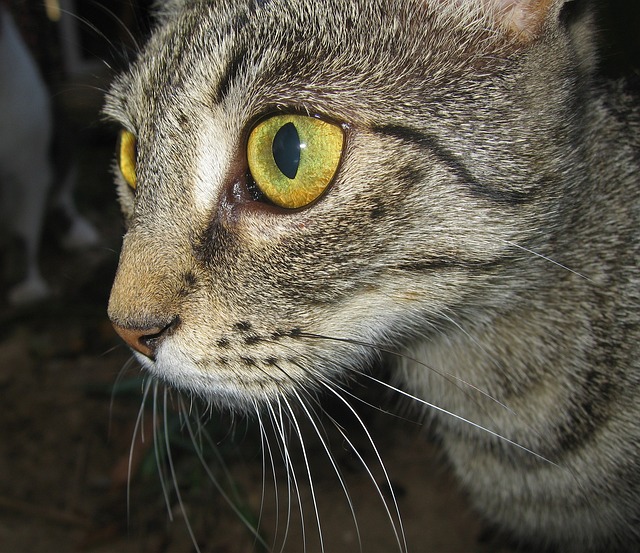
Ever wondered why those captivating cat eyes dilate?
Feeling intrigued, captivated even, by the mystery behind this feline phenomenon?
Trust me, I get it. 😺
You find yourself mesmerized, lost in those dilating pupils, searching for answers.
It's like trying to unlock a secret code, a hidden language.
But fear not, fellow cat enthusiasts, because today, we embark on an illuminating journey together.
Let's dive deep into the fascinating world of feline behavior and uncover the reasons why these enigmatic eyes expand.
Are you ready?
Let's begin.
The Role of Light in Cat Eye Dilation
Cat eye dilation is influenced by light levels. In dim environments, their pupils widen, allowing more light in and enhancing their vision. Conversely, bright lights cause their pupils to contract, protecting their eyes from excessive light. Cat eye dilation can also occur due to stress or excitement.
Cats have this fancy eye system called tapetum lucidum that helps them see in the dark.
It's like their own superhero power!
This thingamajig is the reason behind why their eyes dilate.
The size of a cat's pupils can change depending on the light around them and other stimuli that get them excited or stressed. It's kind of fancy, don't you think?
It's like they have their own built-in hype squad!
When it's dark, you'll notice your cat's eyes widen up like two full moons.
This is because dilated pupils let in more light, making it easier for them to see in dim environments.
They become mini cat-owls!
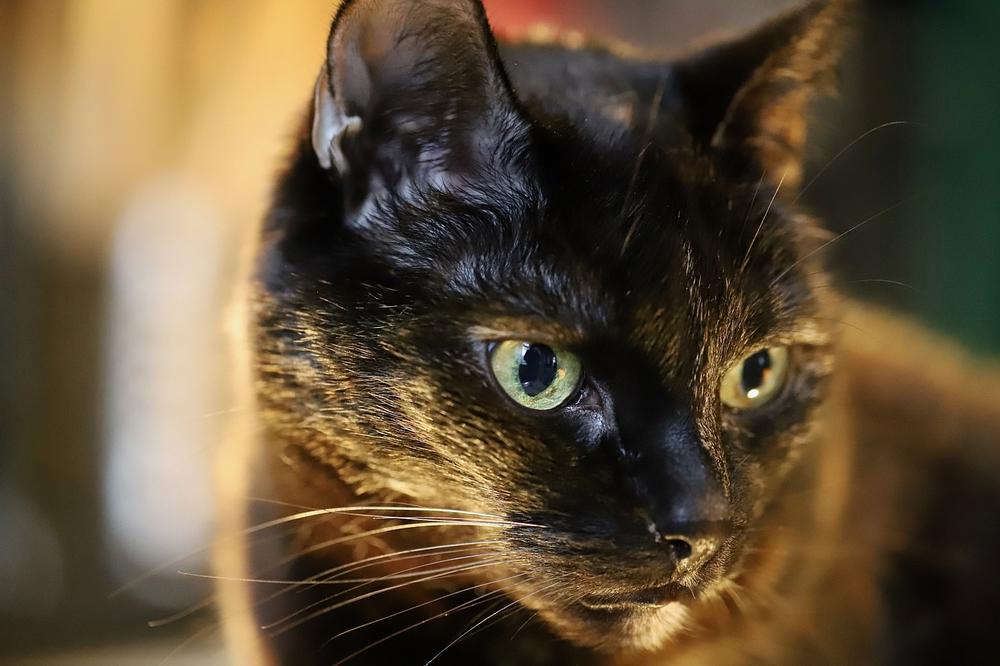
On the other hand, when they're out during the day or facing bright lights, their pupils contract into tiny slits.
It's like they're following the latest fashion trends for cat-eyes...
This helps protect their eyes from too much light and prevents any damage.
But here's the kicker - dilated pupils aren't just about light sensitivity.
They can also happen when your cat gets stressed or all hyped up.
So, if something alarming happens or they get super excited, those pupils may dilate as part of their body's reaction.
And here's the surprising part—cat eyes have another fascinating feature that enhances their vision in low light conditions.
But before I explain this unique anatomy, let me introduce you to their remarkable vertical slit-shaped pupils and an intriguing protective layer called the nictitating membrane.
Trust me, you don't want to miss this!
The Anatomy of a Cat's Eye
Cat's eyes are really interesting. 😺
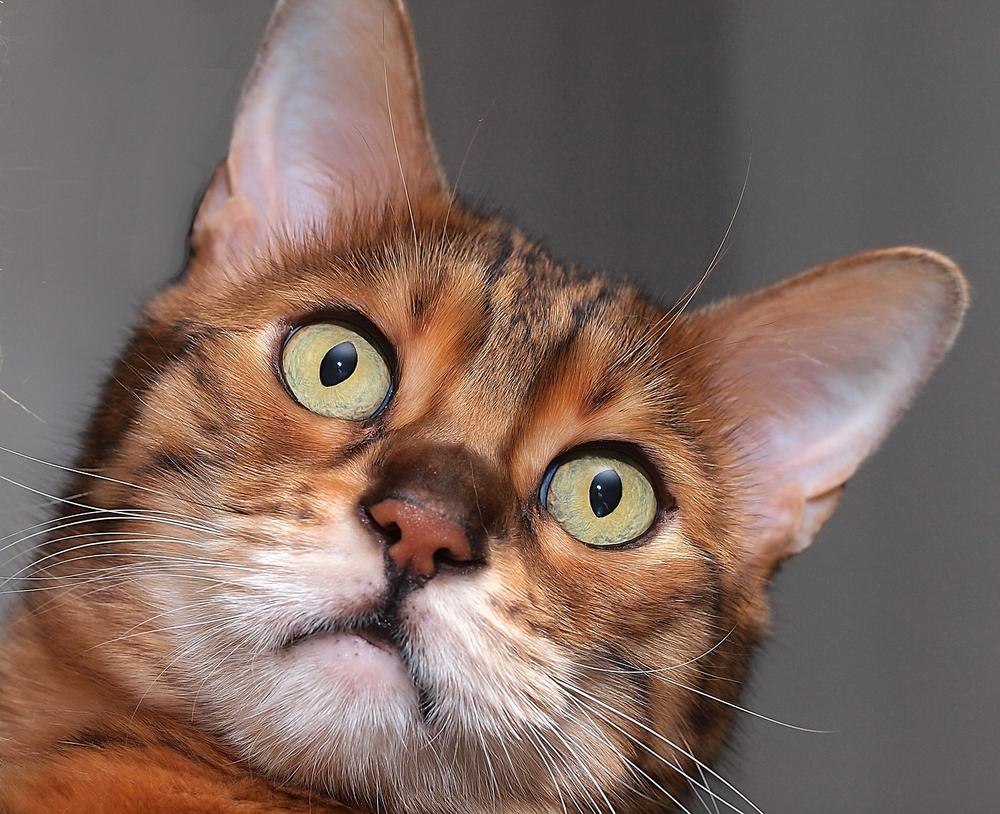
I'll break it down for you simply:
- A cat's pupil is shaped like a vertical slit, which helps control the amount of light coming in so they can adjust based on their surroundings.
- On top of their cool pupil shape, cats also have a third eyelid called the "nictitating membrane" that covers and protects their eye.
- The iris, the colored part of their eye, surrounds the dark slit-shaped pupil.
- This unique setup gives cats super sight in low-light situations.
- They have more rods than cones in their eyes, making them pretty great at seeing in the dark.
- Cats also have this thing called the tapetum lucidum behind their retina that reflects light, giving them even better night vision.
- All of these incredible adaptations make cats amazing hunters who can see perfectly in even the dimmest of lights.
Pretty impressive, huh?
Now you know what makes a cat's eyes so special.
And now, let me explain why those impressive feline eyes have another trick up their sleeve - when a cat's pupils dilate, their visual acuity reaches a whole new level!
The Relationship between Cat Eye Dilation and Hunting
When hunting, playing, or engaged in any intense activity, you will notice that a cat's pupils dilate.
This expansion allows cats to sharpen their visual acuity and concentrate on minute movements and objects.
By letting in more light, the dilation of their pupils heightens their ability to see things clearly.
So, the next time you observe your feline friend with wide, dilated eyes, remember that they are simply gearing up to become even better hunters and explorers in their surroundings.
It's nature's way of equipping them with the tools they need for success.
Incredible, isn't it?
And if you're wondering about other curious behaviors of our feline friends, I've got just the thing for you! In my blog post Why Your Cat Grunts, you'll find all the answers you need to understand why your cat sometimes makes those intriguing noises.
Cat Eye Dilation as a Sign of Aggression or Fear
When a cat's eye dilates, it can mean they are feeling aggressive or scared.
Their pupils rapidly expand and contract to indicate that they are ready to attack if necessary. This dilation shows their aggression towards potential threats.
On the other hand, if their pupils are constricted, it means they are agitated, angry, and may attack soon. The size of a cat's eyes and the state of its pupils give you a glimpse into their emotional state, so pay close attention!
While dilated eyes can also signal playfulness, stress, or anxiety, they may reveal fear of the unknown or being startled.
This is important to keep in mind.
Observing a cat's eyes can help you identify signs of stress because dilated pupils often accompany stress. Remember that cat eyes can dilate due to fight or flight responses as well as pain. This knowledge is valuable.
If your cat gets scared easily, consider desensitization training to help soothe them.
It could truly make a difference!
The Connection between Emotions and Cat Eye Dilation
Cat eye dilation is a revealing indicator of emotions. Dilated pupils can signify excitement, fear, or anxiety, offering a glimpse into a cat's inner world. Paying attention to changes in eye dilation can also help detect potential health issues, strengthening the bond with your feline friend.
When a cat gets excited or anticipates something, their pupils can dilate for a temporary period, showing that they are highly interested or aroused by their surroundings.
Pay attention to these dilated pupils because they can give you valuable information about your cat's emotions and in essence well-being.
Cats have a calm and composed appearance, unlike us humans who have expressive eyebrows. This makes it difficult to understand their feelings just by looking at them.
However, there's a trick to it - focus on their eyes.
The eyes are the key to understanding how they're doing.
When their eyes are relaxed, it means your cat is feeling sleepy or drowsy.
It gives you a sense of comfort and trust knowing that they are in a restful state.
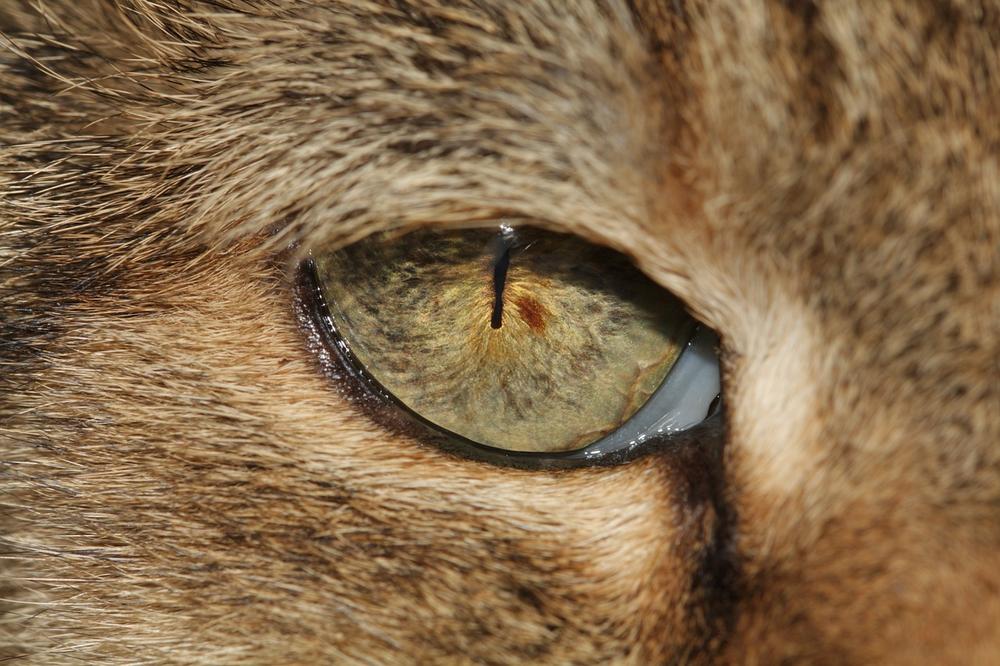
But wait, there's more to it!
If a cat's pupils are dilated, it can indicate a wide range of emotions, from excitement to fear and anxiety.
It's like having a peek into their little kitty souls. It's fascinating how much their eye dilation can reveal about what they may be feeling.
Now, here’s an interesting twist: changes in eye dilation can also provide insight into potential health issues. So, pay attention when you're grooming your cat.
Not only does this help strengthen the special bond between you and your feline friend, but it also gives you an opportunity to notice any changes in their emotions or health.
Always keep a close watch on those mesmerizing eyes!
And it gets more fascinating when you consider the power of a simple blinking gesture.
Not only can cat eyes reveal their emotions, but also establish trust and deepen your bond with them.
Now, let's take a closer look at how this eye communication works...
Cat Eye Dilation as a Form of Communication
Cat eye dilation is a form of communication
Cats have their own way of talking to you, and guess what?
Their eyes are a big part of it.
Some cats have dilated eyes, and that means they trust you and feel safe with you.
Dilated eyes mean your cat feels safe and relaxed
When your cat looks at you with wide eyes, it's because they feel good around you.
It's like a compliment.
Those squinted or half-closed eyes are also a sign of affection and contentment.
They're saying, "I'm cozy and happy here with you."
Building trust through blinking
If you want to strengthen your bond with your cat, try blinking slowly at them. It's like telling them, "I trust you." And you know what?
Your cat might just blink back at you.
It's their way of showing love and building a special connection between the two of you.
By understanding and responding to your cat's eye expressions, you'll be able to communicate better with them.
So go ahead, appreciate those dilated eyes and enjoy the unique language of our furry friends.
Oh, and don't forget about catnip – it can make your cat playful and maybe even drool in happiness!
The Impact of Age and Medical Conditions on Cat Eye Dilation
- As cats get older, just like you, they might have changes in their eyesight.
- When cats age, they may not dilate their pupils as much when the lighting changes.
- If your cat is in pain, their pupils might be dilated.
- You know that herb called catnip? It can make a cat's pupils temporarily dilate.
- Certain substances, like toxins or medications, such as atropine, can affect a cat's eye dilation.
- There's this condition called glaucoma that can cause abnormal and prolonged eye dilation in cats.
- Hypertension, also known as high blood pressure, can impact a cat's eye dilation too.
If you see your cat's eyes staying dilated for a long time, or if one pupil looks dilated while the other doesn't, you should definitely take them to the vet.
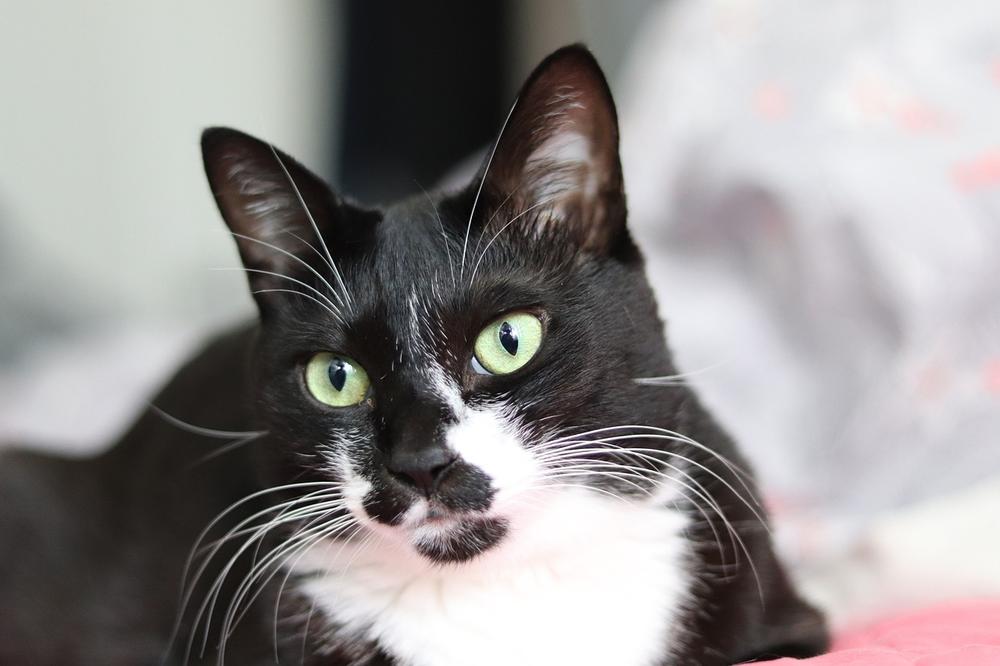
The vet will examine your cat, run some tests, and create a personalized plan of action which could involve managing pain, giving medications, adjusting their diet, or even doing surgery if necessary.
When a cat's eyes always stay dilated, it could mean something more serious is going on with their health.
That's why you must have a professional check them out.
The Significance of Cat Eye Dilation
Key Takeaways:
- The size of a cat's eyes can change to allow more or less light, depending on the ambient light and stimuli.
- Dilated pupils in cats enhance vision in low-light conditions by absorbing more light.
- Bright light causes the pupils to contract, protecting the eyes from excessive light.
- Large pupils help cats navigate and see better in low-light situations.
- Dilated eyes can be a temporary response to stressful situations or adrenaline rushes.
- Cats have vertical slit-shaped pupils that help them see in low light.
- The nictitating membrane is a third eyelid that covers and protects a cat's eye.
- Dilated pupils in cats during play allow more light in for better visibility.
- Constricted pupils indicate agitation or anger, while dilated eyes can be a sign of stress or anxiety.
- Dilated pupils in cats can provide important clues about their emotions and well-being.
- Dilated pupils can indicate excitement, fear, and anxiety in cats.
- Observing changes in a cat's eye dilation can help identify potential health issues.
- Squinted or half-closed eyes in cats signify affection, relaxation, and trust.
- Catnip can cause dilated pupils, heightened playfulness, and drooling in cats.
- The impact of age and medical conditions can affect cat eye dilation.
And that wraps up today's article.
If you wish to read more of my useful articles, I recommend you check out some of these: Why Does My Cat Hates Being Held, Why Do Female Cats Hump, Are Cats Possessive of Their Owners, Why Do Cats Watch You Poop or Pee, and Why Does My Cat Hold My Hand
Talk soon,
-Sarah Davis